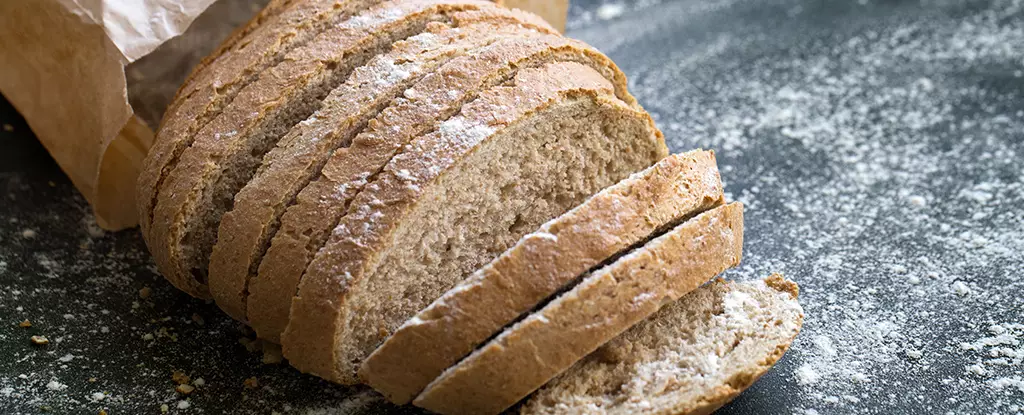A recent trend on TikTok suggests that freezing bread can actually make it healthier. While some claim that there is research to support this idea, it is essential to look at the science behind it to determine the validity of these claims. When bread is cooked, the moist dough transforms into a soft, fluffy loaf due to the expansion and gelatinization of starch in the flour. This process makes the glucose in the starch easier for our cells to access, particularly in foods low in fiber or made from finely milled flours like white bread or potatoes. However, when these starches are cooled after being cooked, they shrink back down and become resistant starches, which are harder for our digestive enzymes to break down. This leads to a slower release of sugar into the bloodstream, reducing the blood sugar and insulin spikes after consumption.
The rate at which resistant starch forms in bread depends on the baking temperature and whether it is then refrigerated or frozen. Freezing bread can result in nearly twice the contraction of starches compared to refrigeration alone, leading to more resistant starch formation. Additionally, freezing bread helps trap water, keeping it fresher and softer than storing it in the fridge where moisture loss can cause the bread to become hard. Research on the effects of freezing and toasting bread showed that homemade bread exhibited a 31% reduction in blood sugar spikes over two hours when frozen and thawed, with even greater benefits when toasted. However, store-bought white bread did not show significant improvements in blood sugar response after being frozen and toasted, potentially due to differences in production methods and ingredients.
Resistant starch is not only found in frozen bread but also in other chilled starchy foods like potatoes, pasta, and certain types of rice. Basmati rice, in particular, contains more resistant starch than fluffier varieties. This type of starch provides nutrients to gut bacteria, promoting a healthy microbial balance in the colon. The fermentation of resistant starch by gut bacteria produces short-chain fatty acids that can improve insulin sensitivity, aid in better blood sugar utilization, and even help lower cholesterol levels. These benefits may extend to reducing the risk of heart disease, showcasing the potential advantages of incorporating resistant starch into one’s diet.
Long-Term Implications of Freezing Bread
While freezing bread may offer short-term benefits in reducing blood sugar spikes after meals, its long-term effects on appetite, weight gain, and disease risk remain uncertain. The impact of resistant starch on metabolism, insulin sensitivity, and cholesterol levels is noteworthy but may not translate to significant changes in overall health. It is essential to consider freezing bread as a means of reducing food waste and potentially gaining some health benefits, albeit minor in nature.
The concept of freezing bread to enhance its health benefits may have some merit based on scientific principles. However, the actual impact on long-term health outcomes is likely minimal. Incorporating sources of resistant starch into your diet, such as frozen bread, can provide short-term advantages in managing blood sugar levels and promoting gut health. While freezing bread can be a practical solution to food preservation and potential health benefits, it should be viewed as a minor dietary enhancement rather than a significant lifestyle change.


Leave a Reply